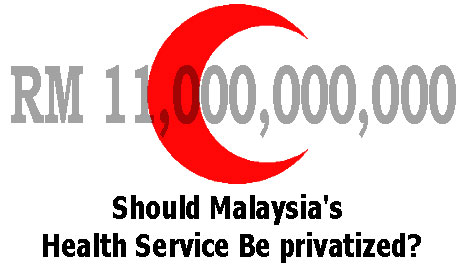Transport Minister, Datuk Seri Chan Kong Choy should fully explain the second scandal since he became Transport Minister — the e-Kesihatan scandal which is also the latest example of e-government in Malaysia degenerating into e-scams.
The first scandal during Chan’s stewardship as Transport Minister is the RM4.6 billion Port Klang Free Zone (PKFZ) bailout scandal, for which a full and proper accounting has still to be furnished by him.
Although the Cabinet on Wednesday decided to postpone the eKesihatan health screening of commercial drivers to enable the Economic Planning Unit (EPU) to co-ordinate the implementation of the programme, what are exactly the implications of the Cabinet decision.
Does it mean that the RM450 million 15-year eKesihatan middleman concession to centralize the health screening of commercial drivers, scheduled to begin on Oct. 1, had been merely postponed with the monopoly position of Supremme Systems Sdn. Bhd. basically unaffected or could the whole concession monopoly be scrapped?
And in the latter, would Supremme Systems be compensated a substantial amount resulting in a “heads I will, tail you lose” situation for the company at the expense of the taxpayers, as had happened in the past like the Johore Baru crooked half-bridge cancellation, where the contractor Gerbang Perdana Sdn. Bhd had been paid compensation of RM257.4 million, although the government had earlier computed a RM100 million compensation!
Chan should make public the full details of the eKesihatan contract which had been signed between the Road Transport Department and Suprmme Systems Sdn. Bhd, whether the Transport Ministry had fully committed the government to compensate Supremme Systems for delays in implementing the eKesihatan scheme, like the postponement decided by the Cabinet on Wednesday.
After the shocking disclosures of pervasive mismanagement of public funds in the 2006 Auditor-General’s Report and the RM4.6 billion PKFZ bailout scandal caused by the Transport Minister unlawfully committing the government to stand guarantee for RM4 billion bonds issued by a private company developing the PKFZ, Malaysians are entitled to demand higher standards of accountability to avoid repetition of the same mistakes in the Transport Ministry and the continued mismanagement of public funds. Continue reading “E-government to e-scam – Kong Choy should publicly justify e-Kesihatan”


